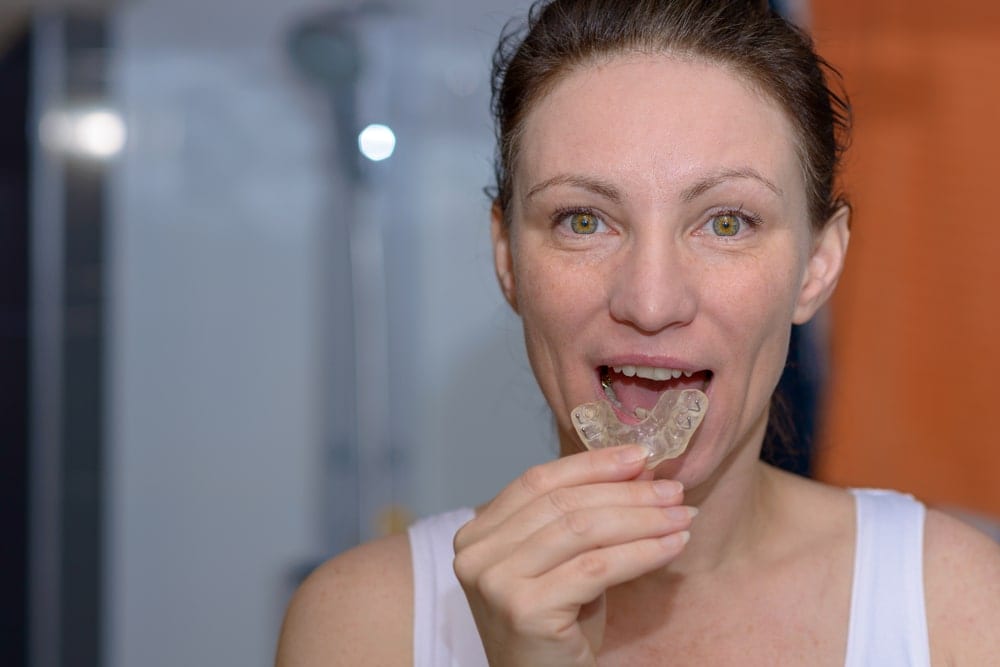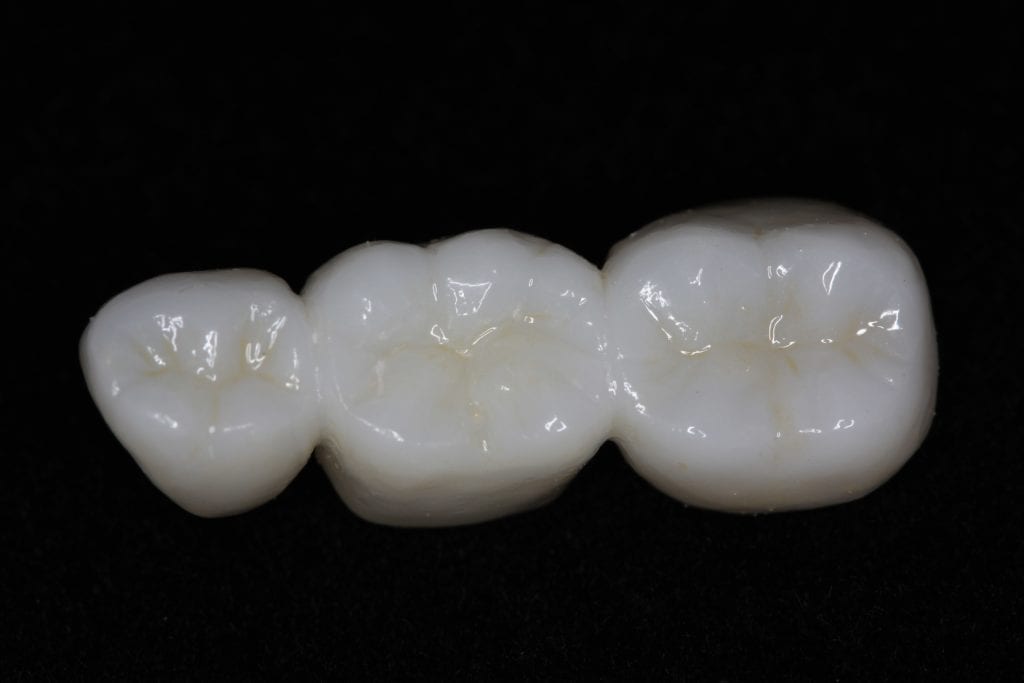Did you know that many Canadians experience jaw pain on a regular basis? If you are one of these people, then chances are you know just how debilitating jaw pain can be, especially if it is severe. Jaw pain is generally due to a condition known as temporomandibular disorder or TMD for short. TMD can be used to describe dysfunction in the bones, muscles, tendons, and nerves that make up the jaw joint.
Besides jaw pain, TMD can cause a variety of other symptoms including:
- Clicking, popping, or grinding while opening and closing the mouth
- Fatigue in the facial muscles
- Pain in the face, ears, neck, or shoulders
- Frequent headaches
- Problems opening your mouth wide or chewing
While there is no known cause of TMD, it is believed to occur when there is excess strain placed on the jaw joint. Therefore, treatments for jaw pain caused by TMD generally revolve around decreasing the amount of strain on the joint in order to alleviate symptoms. If you are suffering from frequent jaw pain, then your dentist may recommend one of the following:
Nightguard

Some cases of TMD occur as a result of teeth grinding or clenching. This is an unconscious behavior that is brought on by stress and usually occurs at night while you are sleeping. Your dentist will be able to tell if you grind or clench your teeth by looking for specific wear patterns on your enamel. If your dentist believes that your jaw pain is due to teeth grinding or clenching, then they may recommend you wear a dental night guard. A dental night guard can be worn on the upper or lower arch of teeth, where it will act as a barrier between the top and bottom teeth. In most cases, nightguards will not stop you from grinding or clenching your teeth, however they will keep your jaw in a position that causes less strain and protect your teeth from becoming damaged.
Dental Crown
Another possible cause of jaw pain or TMD is an uneven bite that places constant strain on the jaw joint. While there are many causes of an uneven bite, one common cause is teeth affected by damage, decay, or wear. Since these teeth have likely changed in size and/or shape, they can change the way that your teeth all fit together and can ultimately change your bite. In these cases, your dentist may recommend restoring damaged, decayed, or worn teeth with a dental crown in order to return the affected teeth to their natural size and shape. This will allow your teeth to meet up evenly and will help reduce the strain on your jaw joint.
Orthodontics
Some bite problems cannot simply be fixed with dental crowns and are better corrected with orthodontic treatment. This is generally the case for malocclusions such as overbites, underbites, crossbites, and open bites. In these cases, your dentist may recommend orthodontic treatment with clear aligner therapy in order to reposition your teeth and bite so that less pressure is exerted on the jaw joint.
Implant-Supported Dental Bridge

Missing teeth can also affect the alignment of your bite and cause jaw pain. This is because the spaces left by missing teeth allow the surrounding teeth to shift in position to fill the space. As the surrounding teeth move this causes the entire bite to change, which places excess strain on the jaw joint. In these cases, your dentist will likely recommend replacing missing teeth as soon as possible. One common tooth replacement option that may be recommended is an implant-supported dental bridge. Like traditional dental bridges, implant-supported bridges can replace multiple missing teeth at once. However, unlike traditional dental bridges, implant-supported bridges are supported by dental implants placed in the jawbone. When only a single tooth is missing, an implant-supported crown will likely be recommended instead.

Dr. Admar holds dual certificates — a Bachelor of Dental Surgery (BDS) in 2010 from India and a Doctor of Dental Surgery (DDS) in 2014 from Canada. He is now a full time practicing dentist in Kamloops where he provides a variety of services. Dr. Admar spends hundreds of hours in continued dental education to stay up to date in cosmetic and implant dentistry and he has achieved several advanced qualifications.


